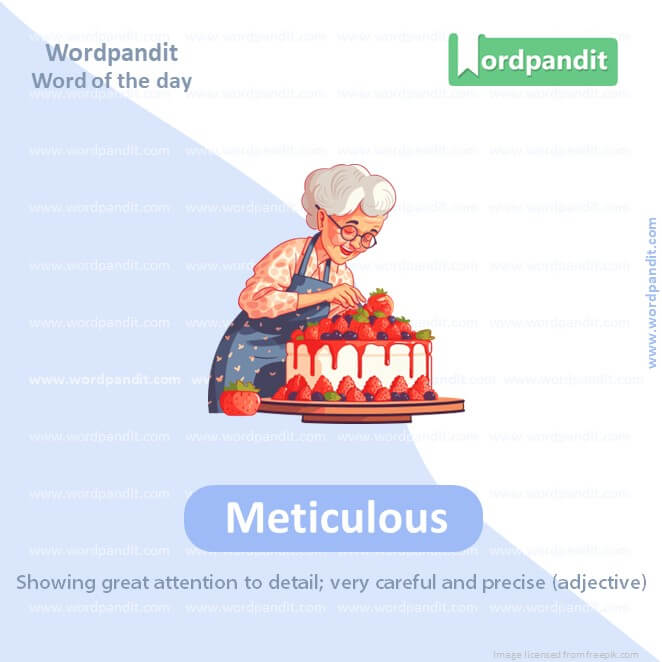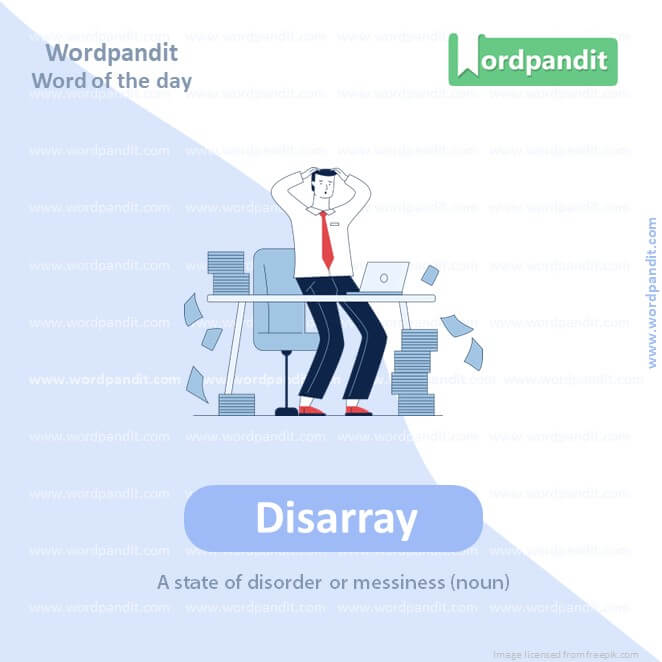Daily Vocabulary Words: List of Daily Used Words in Leading Indian Newspapers
Hi there. Welcome to this special section @ Wordpandit. Our endeavour here is straightforward: highlighting daily vocabulary words that you would come across in leading newspapers in the country. We have included the following newspapers in our selection:
• The Times of India
• The Economic Times
• Hindustan Times
• Mint
• Indian Express
We are putting in extensive work to develop your vocabulary. All you have to do is be regular with this section and check out this post daily. This is your repository of commonly used words; essentially, we are posting a list of daily used words. Hence, this has significant practical application as it teaches you words that are commonly used in leading publications mentioned above.
Visit the website daily to learn words from leading Indian newspapers.

WORD-1: Wandering
CONTEXT: if he was bent on wandering off again just before a general election, then he should have had the political sense to begin the yatra in Ayodhya so that he could have stolen some of Narendra Modi’s thunder.
SOURCE: Indian Express
EXPLANATORY PARAGRAPH: Wandering is like walking around without a clear place to go, like when you just walk around the park looking at flowers and trees without a plan.
MEANING: Moving around without a specific destination or purpose (verb).
PRONUNCIATION: wahn-dur-ing
SYNONYMS: Roaming, Meandering, Drifting, Strolling, Ambling
USAGE EXAMPLES:
1. She spent the afternoon wandering through the streets.
2. His mind was wandering during the lecture.
3. They went wandering in the forest.
4. The dog was found wandering the neighborhood.
WORD-2: Nullified
CONTEXT: The low bounce nullified our strength and our aggressive batting was out of the equation as well.
SOURCE: Indian Express
EXPLANATORY PARAGRAPH: Nullified is like when you have a rule and then decide it doesn’t count anymore. It’s like saying, “This rule isn’t a rule now.”
MEANING: Made something lose its value or effectiveness (verb).
PRONUNCIATION: nuhl-uh-fahyd
SYNONYMS: Invalidated, Voided, Cancelled, Annulled, Abrogated
USAGE EXAMPLES:
1. The contract was nullified by the court.
2. His actions nullified the agreement.
3. The goal was nullified due to a foul.
4. The new evidence nullified the previous findings.

WORD-3: Embraced
CONTEXT: What stood out to me was how well the team embraced expectations.
SOURCE: Indian Express
EXPLANATORY PARAGRAPH: Embraced is like giving a big hug to someone, but it can also mean accepting an idea or change happily, like being excited about starting a new school.
MEANING: Accepted or supported something willingly or enthusiastically (verb).
PRONUNCIATION: em-braysd
SYNONYMS: Accepted, Welcomed, Adopted, Received, Hugged
USAGE EXAMPLES:
1. She embraced the new opportunity.
2. They embraced each other warmly.
3. The community embraced the new changes.
4. He embraced the challenge with enthusiasm.

WORD-4: Meticulous
CONTEXT: The final result doesn’t take away all the meticulous planning which made India the team to beat — since the Asia Cup.
SOURCE: Indian Express
EXPLANATORY PARAGRAPH: Meticulous is like being super careful about every little detail, like when you color inside the lines perfectly or arrange your toys in a perfect line.
MEANING: Showing great attention to detail; very careful and precise (adjective).
PRONUNCIATION: muh-tik-yuh-luhs
SYNONYMS: Careful, Precise, Thorough, Diligent, Exact
USAGE EXAMPLES:
1. Her meticulous work earned her praise.
2. He was meticulous in his planning.
3. Meticulous attention to detail was necessary for the project.
4. The meticulous artist spent hours on each detail.

WORD-5: Disarray
CONTEXT: the first time at the World Cup, they threw our plans into disarray and we couldn’t counter theirs.
SOURCE: Indian Express
EXPLANATORY PARAGRAPH: Disarray is like when your room is super messy, with toys and clothes all over the place. It means things are not organized or neat.
MEANING: A state of disorder or messiness (noun).
PRONUNCIATION: dis-uh-ray
SYNONYMS: Disorder, Confusion, Chaos, Mess, Tangle
USAGE EXAMPLES:
1. The room was in complete disarray.
2. The team’s plans were thrown into disarray.
3. Books and papers were scattered in disarray.
4. He found his thoughts in disarray.

WORD-6: Aviation
CONTEXT: As far as aviation is concerned, developing sustainable aviation fuel is a long way off.
SOURCE: Indian Express
EXPLANATORY PARAGRAPH: Aviation is all about airplanes and flying. It’s like being a pilot or working at an airport where planes take off and land.
MEANING: The activity or industry related to flying aircraft (noun).
PRONUNCIATION: ay-vee-ay-shun
SYNONYMS: Flying, Aeronautics, Air Travel, Flight, Aerospace
USAGE EXAMPLES:
1. He had a passion for aviation since childhood.
2. Aviation technology has advanced rapidly.
3. The museum showcases the history of aviation.
4. She pursued a career in aviation.
WORD-7: Acquisition
CONTEXT: States need to make land acquisition processes simpler and also ensure regular payments to the renewable generators.
SOURCE: Indian Express
EXPLANATORY PARAGRAPH: Acquisition is like getting something new, like a new toy or book. It’s the act of gaining or receiving something.
MEANING: The act of gaining possession of something (noun).
PRONUNCIATION: ak-wuh-zish-un
SYNONYMS: Purchase, Procurement, Obtaining, Gaining, Attainment
USAGE EXAMPLES:
1. The library’s new acquisition was a rare book.
2. The company made a major acquisition.
3. His latest acquisition was a vintage car.
4. The museum announced the acquisition of new artworks.
WORD-8: Galvanised
CONTEXT: a tournament does allow you to get galvanised, and go hard and that’s what we love to do.
SOURCE: Indian Express
EXPLANATORY PARAGRAPH: Galvanised is like when you suddenly get really excited or determined to do something, like deciding to clean your room super fast so you can go out to play.
MEANING: Stimulated into action; motivated or invigorated (verb).
PRONUNCIATION: gal-vuh-nahyzd
SYNONYMS: Motivated, Energized, Stimulated, Spurred, Excited
USAGE EXAMPLES:
1. The team was galvanised by the coach’s speech.
2. The news galvanised the public into action.
3. She was galvanised to study harder after the test.
4. The crisis galvanised them to find a solution.
WORD-9: Fostered
CONTEXT: Then our soldiers fought in the First World War, and the Anzac spirit was fostered in our nation.
SOURCE: Indian Express
EXPLANATORY PARAGRAPH: Fostered is like when you help something grow or develop, like watering plants or teaching a younger sibling how to read.
MEANING: Encouraged or promoted the development of something (verb).
PRONUNCIATION: faw-sturd
SYNONYMS: Nurtured, Encouraged, Cultivated, Promoted, Advanced
USAGE EXAMPLES:
1. The program fostered a love of reading in children.
2. She fostered good relationships within the team.
3. The teacher fostered his interest in science.
4. The environment fostered creativity.
WORD-10: Endorsing
CONTEXT: We have here five considerations for endorsing or opposing an investigation or evidence collection exercise like the caste census.
SOURCE: Indian Express
EXPLANATORY PARAGRAPH: Endorsing is like when you say you really like something or agree with it, like telling friends how much you love a certain game or book.
MEANING: Showing support or approval of something or someone (verb).
PRONUNCIATION: en-dor-sing
SYNONYMS: Supporting, Approving, Backing, Recommending, Advocating
USAGE EXAMPLES:
1. The celebrity was endorsing a new product.
2. By signing the petition, they were endorsing the cause.
3. The organization is endorsing the new environmental policy.
4. He is known for endorsing healthy lifestyle
Vocabulary Importance
In the realm of language learning, understanding ‘vocabulary importance’ is a fundamental concept. Words are the building blocks of language and a rich vocabulary fuels effective and persuasive communication. However, embracing ‘vocabulary importance’ involves more than just acknowledging its role – it requires you to integrate it into your learning strategy.
To truly grasp ‘vocabulary importance’, expose yourself to a variety of reading and listening activities. Whether it’s reading novels, engaging with podcasts, or watching films in your the profound impact of having a robust vocabulary arsenal and will illuminate the practical ‘vocabulary importance.’
Additionally, recognizing ‘vocabulary importance’ necessitates an active approach to vocabulary acquisition. Regularly dedicate time to learning new words. Use flashcards, word lists, language apps, or even set a ‘word of the day’ to maintain a steady flow of vocabulary learning.
Incorporating the learnt vocabulary into your speech and writing is non-negotiable when understanding ‘vocabulary importance’. Regular usage not only enhances vocabulary retention, but it also uncovers the magic of eloquent expression that a blossoming vocabulary can yield.
It’s also beneficial to lean on memory aids in recognizing ‘vocabulary importance’. Associating words with images, stories or personal anecdotes creates strong memory hooks, enhancing vocabulary recall and solidifying the understanding of ‘vocabulary importance’.
To sum it up, ‘vocabulary importance’ is not just a theory to be noted, but a mantra to be embraced in your language learning journey. Engage with a wide variety of resources, actively learn and use new words, and utilize effective recall techniques. As you uncover the depths of ‘vocabulary importance’, you’ll realize that every new word is a fresh shade on your language palette, painting your communication canvas with hues of eloquence, clarity, and confidence.













